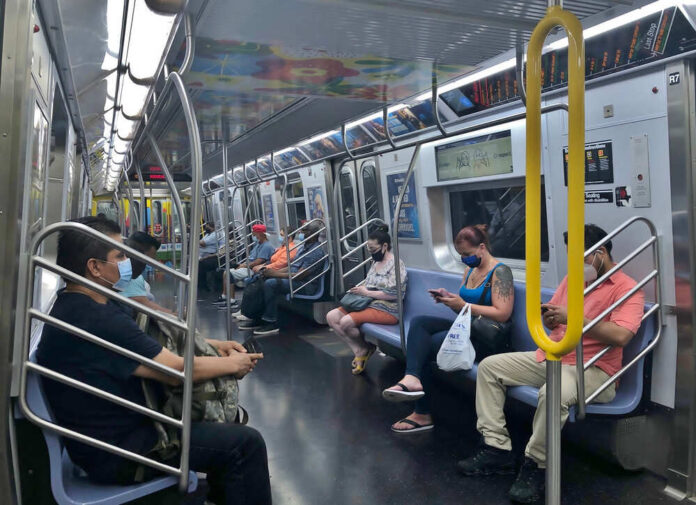
The New York City subway has become a significant topic of discussion since the death of Jordan Neely, with crime and safety concerns at the forefront. Amid the heated debates, Democratic strategist Elizabeth Spiers found herself facing backlash online for dismissing the dangers of riding the subway as “imaginary monsters.” Her tweet posted Monday, which claimed she had “safely ridden the subway for 23 years,” has sparked a flood of opposing responses.
In response to Spiers’ tweet, Dan MacLaughlin of National Review shared his contrasting experience, stating, “While the city was safer for many of those years than it is today, if you’ve never encountered an alarming lunatic on the subway or its platforms, I question what city you’ve been traveling in.” Others criticized Spiers’ reliance on anecdotal evidence. Seth Dillon of the Babylon Bee sarcastically remarked, “I know someone from Chicago who’s never been shot. It follows that gun violence in that city is imaginary.”
Your subway privilege is showing! I have been SPAT on, FOLLOWED, and witnessed full blown ASSAULTS. I have filed MULTIPLE police reports for crimes I’ve witnessed and I only lived in NYC for 7 years. Just because it doesn’t happen to you, doesn’t mean it’s imaginary. https://t.co/iUmHi4x5u3
— Hayley Caronia (@hayleycaronia) May 8, 2023
Hayley Caronia, an OutKick producer, also shared her experience, explaining that she had been spat on, followed, and witnessed assaults on the subway. Another Twitter user recounted their daughter’s insecurity on the subway, ultimately leading to her moving out of New York City.
I know someone from Chicago who’s never been shot. It follows that gun violence in that city is imaginary. https://t.co/R6EbW6J5GE
— Seth Dillon (@SethDillon) May 8, 2023
This online debate emerges as New York City’s subway safety remains a politically prominent battleground. Mayor Eric Adams (D) has invested considerable resources into combating crime on the subway, including increasing police presence and addressing the issue of homelessness on the trains. Yet, despite recent improvements in safety statistics, the tragic death of Jordan Neely on the subway has reignited discussions on public safety and mental health policies.
Hi – New Yorker here. W/in months of moving to the city last summer, a crazy guy w/ a garden hoe on the L-train w/ made me listen to him confess to having strangled a cat to death—a cat he had w/ him wrapped in a canvas bag—because he was sad his grandmother died on his birthday.… https://t.co/9QBPce6UCv
— Justin Lee (@justindeanlee) May 9, 2023
NYC has a brand
— Fife (@fifehateme) May 8, 2023
Adams believes the incident underscores the importance of his policies, stating, “People who are dealing with mental health illness should get the help they need and not live on the train.” However, progressive lawmakers have criticized Adams’ approach, arguing that it perpetuates the stigmatization of mental health issues and poverty.
Tiffany Cabán, a progressive New York City Council member, expressed concern over the “continued bloated investment in the carceral system at the expense of funding access to housing, food, and health.” Maurice Mitchell, head of the National Working Families Party, questioned the effectiveness of Adams’ policies, noting that “even with hundreds of police in our subways, they failed to prevent this—or even apprehend the killer.”
As New Yorkers grapple with the implications of Neely’s death, the conversation surrounding subway safety, mental health, and public policy will likely continue to evolve. It is crucial to recognize that an individual’s claimed experiences, like Spiers’, do not reflect the reality for NYC subway riders. The city must strive to find comprehensive solutions to ensure the safety and well-being of its residents rather than dismissing their legitimate concerns.














